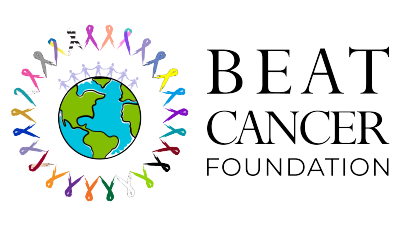
Vitamin D3

Vitamin D: The Essential Cancer Fighter
Discover the number one supplement for cancer prevention and survival. If you can't spend a couple of hours in the sunshine every day, consider supplementing with 5000IUs of vitamin D, as recommended by Harvard Medical School. This "vitamin" is, in fact, a hormone that activates the immune system, reduces the risk of cancer, and even helps correct cancer cells, according to research studies.
The Crucial Role of Vitamin D in Cancer
An overwhelming majority of cancer patients (including those with melanoma) are found to be deficient in vitamin D at the time of diagnosis. Research studies published in Cancer Watch involving breast cancer, melanoma, and colorectal cancer indicate that over 90% of newly diagnosed patients are severely lacking this essential vitamin.
Furthermore, research from the University of California, San Diego, reveals that ongoing levels of vitamin D in the blood can predict survival rates. Several other studies have demonstrated similar results for various cancers. In short, if you have cancer, it's vital to correct your low vitamin D levels.
The extensive body of research on vitamin D levels and cancer includes:
- A 2012 study in Cancer Causes and Control found that former/never smokers were 44% less likely to die from lung cancer if their blood levels of vitamin D were above 44 nmol/litre. This applied to both those with and without cancer, suggesting that vitamin D helps prevent and reduce death from lung cancer.
- In 2013, researchers from St. Louis University showed that women with a BRCA1 mutation were more likely to develop aggressive breast cancer, but vitamin D could block this pathway. BRCA1 is linked not only to breast cancer but also to other cancers like some prostate cancers. Clinical trials are now underway.
- Studies have shown that low vitamin D levels double the risk of bladder cancer, while other research demonstrates the same for pancreatic cancer and lymphoma.
Cancer Patients Face an 80% Increased Mortality Risk Due to Vitamin D Deficiency
A study presented at the 2018 American Society of Clinical Oncology Annual Meeting in Chicago revealed that vitamin D deficiency increased the risk of death by 80% in older patients with solid tumors, but not in those with hematologic malignancies.
Out of 457 cancer patients referred to MD Anderson Cancer Center for geriatric assessment, 302 had bone density analysis, and 396 had vitamin D levels assessed, as recommended by the National Osteoporosis Foundation Guidelines. The researchers found bone health disorders in 77% of the patients tested, while 70% of geriatric cancer patients had vitamin D insufficiency (49%) or deficiency (21%).
Vitamin D is essential not only for cancer prevention but also for cancer survival:
- Adequate blood levels of vitamin D can prevent bladder cancer, and vitamin D cuts pancreatic cancer risk.
- Plasma vitamin D levels can predict survival times in breast cancer, with those having low levels faring the worst.
- Vitamin D supplementation increases breast cancer and colorectal cancer survival rates.
- Vitamin D can correct cancer cells, adjusting nearly every aspect of the cancer cell, switching genes on and off, reducing cancer cell division, and calming the cells so they settle rather than spread. Vitamin D can return cancer cells to a normal, healthy state (Journal of Cell Biology, Nov 17, 2008: 183 (4): 697-710).
- Vitamin D has epigenetic benefits, playing a key role in metabolism and nuclear regulation in aging and cancer. Cancer is reversible, as epigenetics shows.
- Vitamin D can slow or reverse prostate cancer in patients.
- Vitamin D is crucial in fighting triple-negative breast cancer.
Three studies link chemotherapy to severe vitamin D deficiency:
· Researchers from Roswell Park Cancer Center studying patients with colorectal cancer showed that each of three different chemotherapy regimens reduced plasma vitamin D levels down to 21.3 ng/ml, where the optimal range is 30-50 ng/ml.
· Two studies by Dr. William Jacot and colleagues from Montpellier, France, with breast cancer patients demonstrated the same damaging effect. Even though the 18-month chemo treatment spanned two summers, the deficiency in 80% of patients before chemotherapy increased to 97% after. The average vitamin D level dropped from a low 21.3 ng/ml to a damaging 14.7 ng/ml. A quarter of the women treated fell below 10 ng/ml. The researchers recommended tailored vitamin D supplementation for patients.
In conclusion, maintaining optimal levels of vitamin D is crucial for cancer prevention, survival, and overall health. Individuals diagnosed with cancer should pay special attention to their vitamin D levels and consider supplementation as needed, especially during chemotherapy. Consult your healthcare provider to determine the appropriate dosage and to monitor your vitamin D status.
References:
“Knowing all your treatment options could be life-saving!”
Location
Sheridan, WyomingTogether, we can beat cancer
Thank you for your interest in the Beat Cancer Foundation. We are here to support you every step of the way in your cancer treatment journey. Please fill out the form below, and our team will be in touch with you shortly. Together, we can beat cancer. (307) 291-0991

